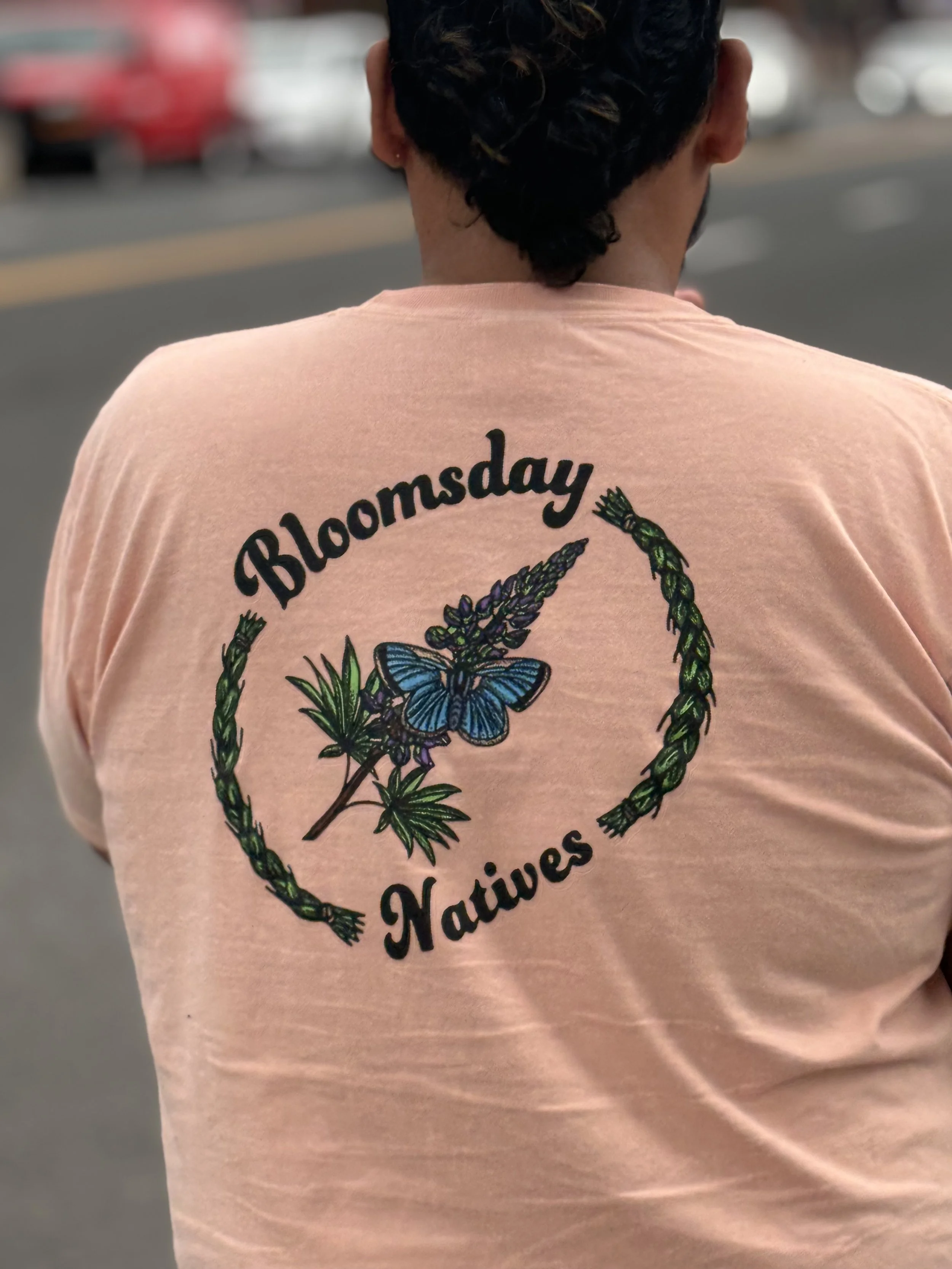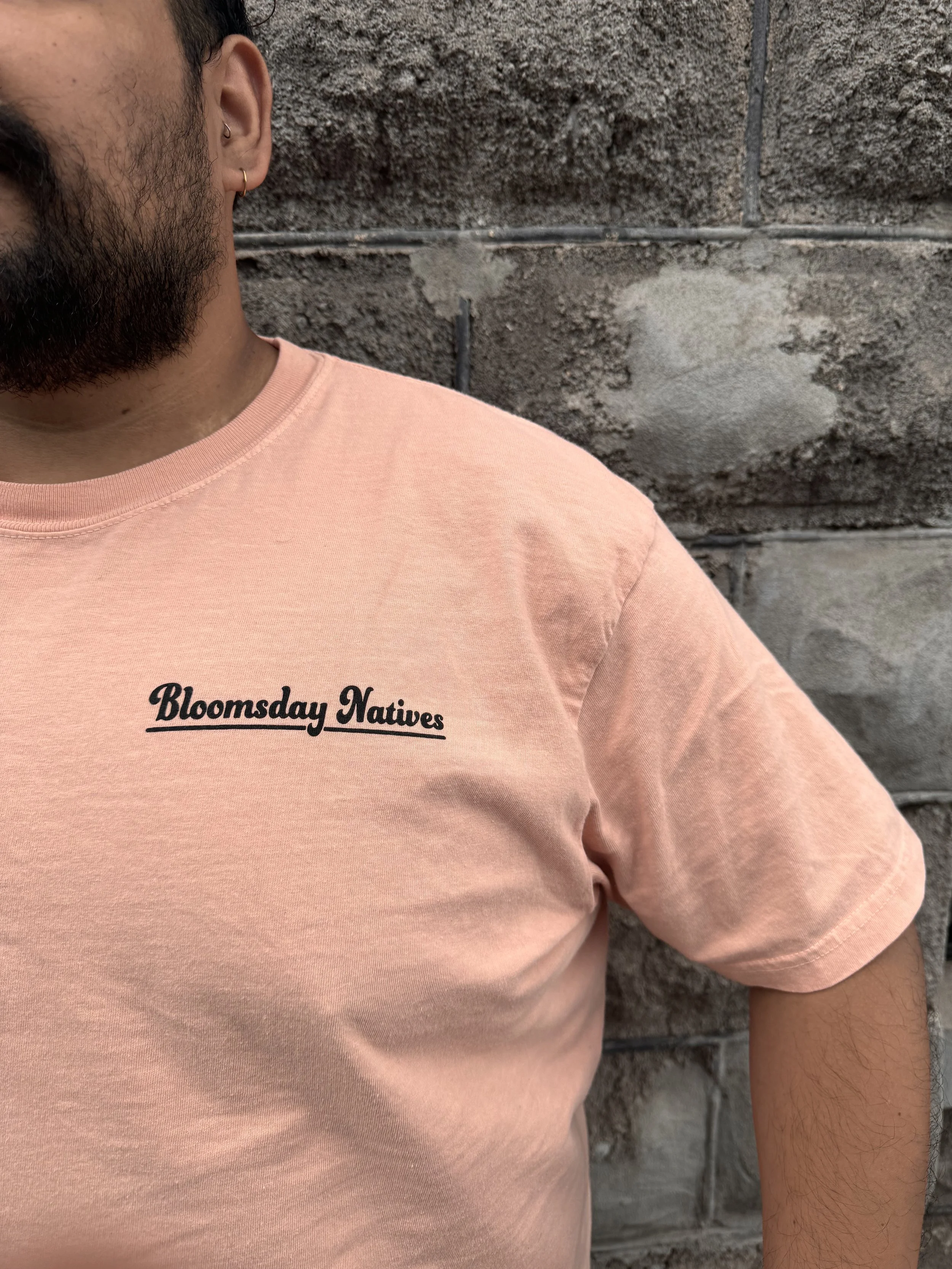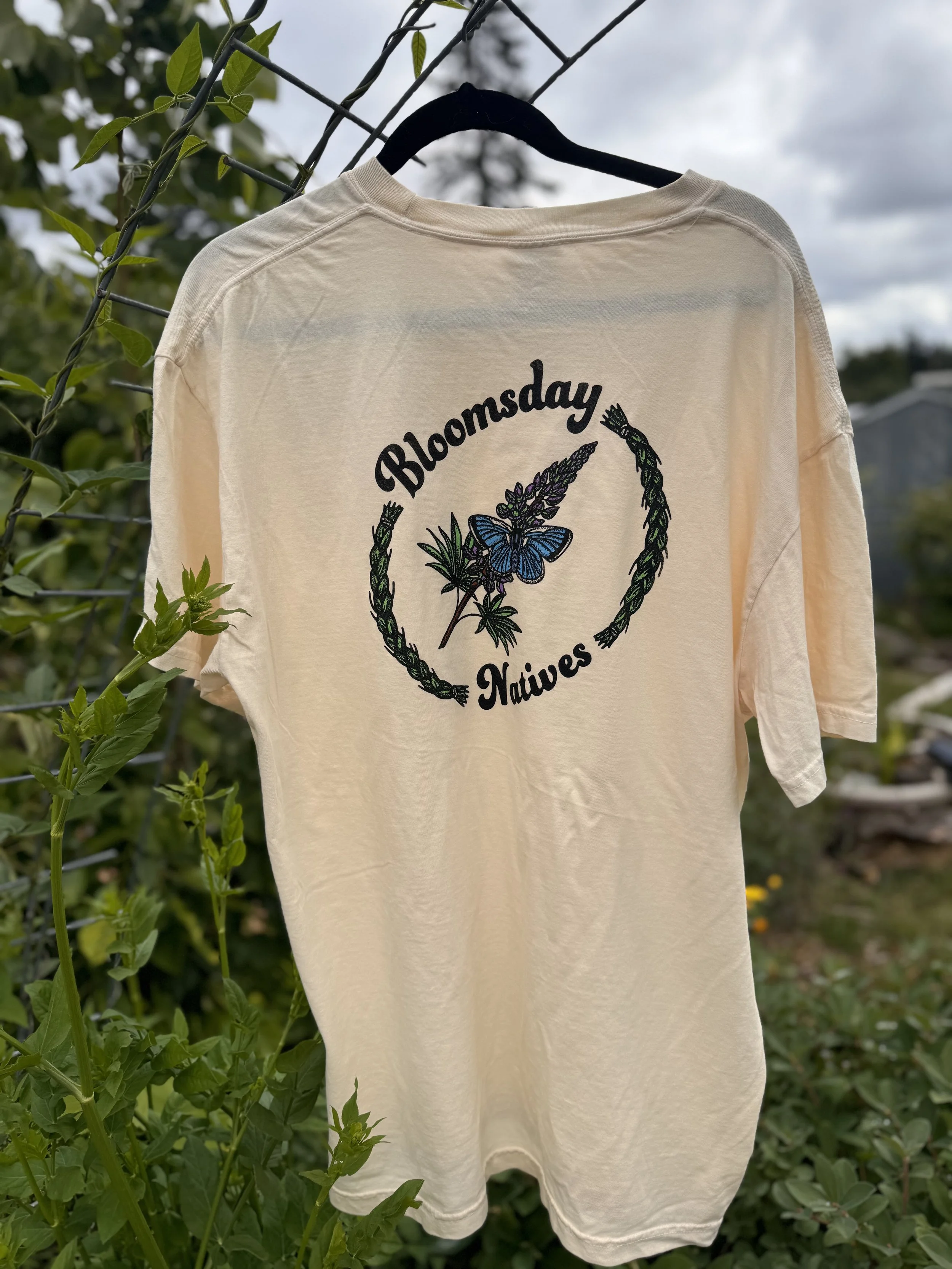Fender's Blue T-Shirt
The Fender’s Blue Butterfly (Icaricia icarioides fenderi) is a very small (~1”) endangered species in the Willamette Valley, that relies on the also endangered Kincaid’s Lupine (Lupinus sulphureus ssp. kincaidii) as a host plant to survive. Prairie and Oak Savanah loss due to urbanization and commercial farming have led to roughly 5% of this unique habitat left in the Willamette Valley drastically impacting the survival of the Fender’s Blue Butterfly. The Fender’s Blue Butterfly (Icaricia icarioides fenderi) is a small (~1”) endangered species in the Willamette Valley, it relies on the also endangered Kincaid’s Lupine (Lupinus sulphureus ssp. kincaidii) as a host plant to survive. Native Prairie and Oak Savanah loss due to urbanization and commercial farming have led to roughly 5% of this unique habitat left in the Willamette Valley drastically impacting the survival of the Fender’s Blue Butterfly and its host plant the Kincaid’s Lupine. We hope that by commemorating this species in wearable form we can continue to provide educational context to the importance of Oak Savanah and encourage more folks in our region to re-think their landscape choices by planting native species so we dont lose even more amazing fauna and habitat. Learn more about the monitoring efforts by the Institute for Applied Ecology here.
combat climate doom with native blooms
The Fender’s Blue Butterfly (Icaricia icarioides fenderi) is a very small (~1”) endangered species in the Willamette Valley, that relies on the also endangered Kincaid’s Lupine (Lupinus sulphureus ssp. kincaidii) as a host plant to survive. Prairie and Oak Savanah loss due to urbanization and commercial farming have led to roughly 5% of this unique habitat left in the Willamette Valley drastically impacting the survival of the Fender’s Blue Butterfly. The Fender’s Blue Butterfly (Icaricia icarioides fenderi) is a small (~1”) endangered species in the Willamette Valley, it relies on the also endangered Kincaid’s Lupine (Lupinus sulphureus ssp. kincaidii) as a host plant to survive. Native Prairie and Oak Savanah loss due to urbanization and commercial farming have led to roughly 5% of this unique habitat left in the Willamette Valley drastically impacting the survival of the Fender’s Blue Butterfly and its host plant the Kincaid’s Lupine. We hope that by commemorating this species in wearable form we can continue to provide educational context to the importance of Oak Savanah and encourage more folks in our region to re-think their landscape choices by planting native species so we dont lose even more amazing fauna and habitat. Learn more about the monitoring efforts by the Institute for Applied Ecology here.
combat climate doom with native blooms
The Fender’s Blue Butterfly (Icaricia icarioides fenderi) is a very small (~1”) endangered species in the Willamette Valley, that relies on the also endangered Kincaid’s Lupine (Lupinus sulphureus ssp. kincaidii) as a host plant to survive. Prairie and Oak Savanah loss due to urbanization and commercial farming have led to roughly 5% of this unique habitat left in the Willamette Valley drastically impacting the survival of the Fender’s Blue Butterfly. The Fender’s Blue Butterfly (Icaricia icarioides fenderi) is a small (~1”) endangered species in the Willamette Valley, it relies on the also endangered Kincaid’s Lupine (Lupinus sulphureus ssp. kincaidii) as a host plant to survive. Native Prairie and Oak Savanah loss due to urbanization and commercial farming have led to roughly 5% of this unique habitat left in the Willamette Valley drastically impacting the survival of the Fender’s Blue Butterfly and its host plant the Kincaid’s Lupine. We hope that by commemorating this species in wearable form we can continue to provide educational context to the importance of Oak Savanah and encourage more folks in our region to re-think their landscape choices by planting native species so we dont lose even more amazing fauna and habitat. Learn more about the monitoring efforts by the Institute for Applied Ecology here.
combat climate doom with native blooms
T-SHIRT SPECS
Item #: 00708
6.1 oz./yd² (US), 10 oz/L yd (CA), 100% ring-spun cotton, 30 singles
Garment dyed for that lived in feel and almost no shrinkage at home.
Soft ring-spun cotton fabric with 100% cotton threads
Relaxed fit
Topstitched, classic width, rib collar
Shoulder to shoulder twill tape
Signature twill label
Made With Respect Proud member of the U.S. Cotton Trust Protocol
Made with OEKO-TEX certified low-impact dyes
Our clean pigment dye colors are salt free
This product meets the following Sustainable Style subcategories:
Sustainable Manufacturing: This product meets the OEKO-TEX Standard 100.
Socially Conscious Manufacturing: This product was made by a mill who partnered with Fair Labor Association and was made in a facility that is WRAP certified.
Shade variations are inherent in the pigment dye process.
Pigment dye colors: These colors provide a vintage look that will remain for the life of the garment. Pigments are insoluble color particles attached to the surface of cloth using a binding agent. Reactive dye colors: Provide a traditional dyed appearance, with the same great softness.




